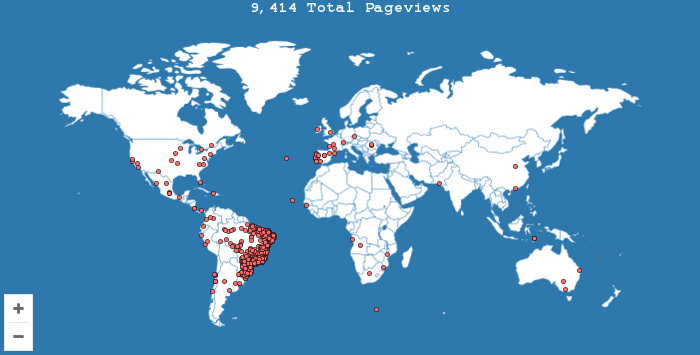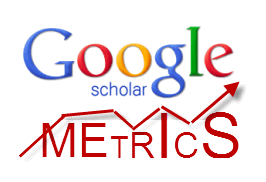Actions and challenges for the welcome and implementation of inclusive educational practices for refugee and migrant students
DOI:
https://doi.org/10.31496/rpd.v24i49.1615Keywords:
education, refugees, migrants, inclusion, receptionAbstract
Historically, humanity has always lived with forced migrations, caused by the most diverse factors, such as wars and conflicts, humanitarian crises, ethnic cleansing, religious persecution, disasters and environmental changes, construction of infrastructure works, expansion of cultivation areas and pastures and enslavement of peoples. The number of people fleeing wars, persecution and conflicts surpassed 70 million in 2018. Among these are millions of children, who, in addition to dealing with all the traumas involved, will face an even greater challenge: school. Unfortunately, many Brazilian schools are still not prepared to welcome and integrate refugee or migrant students, causing enormous damage to the learning and development of these children. Taking this information into account, the main objective of this paper is to discuss about the process of reception and inclusion of migrant and refugee students in the current Brazilian educational context, through a literature review. For the elaboration of this article, a bibliographic survey was carried out, using the keywords: “education”, “migrant”, “refugee” and “inclusion”. Among the references used, it can be highlighted: Statute of Refugees (UNHCR, 1951), UNHCR (2019a) and Barreto (2010). It is concluded that the solution seems to be the effective participation of the State as a provider of effective public policies. In addition, educational institutions need to be prepared to make the school environment inclusive and welcoming, understanding the differences and respecting the culture of each student as a rich source of knowledge to be shared.
Downloads
References
ACNUR – ALTO COMISSARIADO DAS NAÇÕES UNIDAS PARA OS REFUGIADOS. Convenção Relativa ao Estatuto dos Refugiados. Genebra, Suíça, 1951. Disponível em: https://www.acnur.org/fileadmin/Documentos/portugues/BDL/ Convencao_relativa_ao_Estatuto_dos_Refugiados.pdf. Acesso em: 06 ago. 2019.
ACNUR – ALTO COMISSARIADO DAS NAÇÕES UNIDAS PARA OS REFUGIADOS. Declaração de Cartagena. Cartagena das Índias, Colômbia, 1984. Disponível em: https://www.acnur.org/fileadmin/Documentos/portugues/BD_Legal/ Instrumentos_Internacionais/Declaracao_de_Cartagena.pdf. Acesso em: 13 set. 2019.
ACNUR – ALTO COMISSARIADO DAS NAÇÕES UNIDAS PARA OS REFUGIADOS. Refúgio em números - 4ª edição. Brasília, ACNUR. 2019a. Disponível em: https://www.acnur.org/portugues/wp-content/uploads/2019/07/Refugio-em-nu%CC%81meros_versa%CC%83o-23-de-julho-002.pdf. Acesso em: 04 set. 2019.
ACNUR – ALTO COMISSARIADO DAS NAÇÕES UNIDAS PARA OS REFUGIADOS. Legado da Fuga: Educação e Refúgio no Brasil. Relatório. Brasília: ACNUR, IKM. 2019b. Disponível em: https://www.acnur.org/portugues/wp-content/uploads/2019/05/Legado-da-Fuga.pdf. Acesso em: 26 set. 2019.
ACNUR – ALTO COMISSARIADO DAS NAÇÕES UNIDAS PARA OS REFUGIADOS. Perfil Socioeconômico dos Refugiados no Brasil: Subsídios para elaboração de políticas. Brasília, ACNUR. 2019c. Disponível em: https://www.acnur.org/portugues/wp-content/uploads/2019/07/Pesquisa-Perfil-Socioecon%C3%B4mico-Refugiados-ACNUR.pdf. Acesso em: 26 set. 2019.
BARRETO, L. P. T. F. (org). Refúgio no Brasil: a proteção brasileira aos refugiados e seu impacto nas Américas. 1 ed. Brasília: ACNUR, Ministério da Justiça, 2010. Disponível em: https://www.acnur.org/portugues/wp-content/uploads/2018/02/Refúgio-no-Brasil_A-proteção-brasileira-aos-refugiados-e-seu-impacto-nas-Américas-2010.pdf. Acesso em: 14 set. 2019.
BRASIL. Constituição da República Federativa do Brasil: promulgada em 5 de outubro de 1988. Brasília: Senado Federal, Subsecretaria de Edições Técnicas, 2013. 87 p. 1988.
BRASIL. Lei nº 9.474, de 22 de julho de 1997. Define mecanismos para a implementação do Estatuto dos Refugiados de 1951, e determina outras providências. Planalto. Disponível em: http://www.planalto.gov.br/ccivil_03/LEIS/L9474.htm. Acesso em 13: ago. 2019.
BRASIL. Ministério dos Direitos Humanos. Secretaria Nacional de Cidadania. Plano Nacional de Educação em Direitos Humanos. Brasília: Ministério dos Direitos Humanos, 2018, 50 p. Disponível em: https://www.mdh.gov.br/navegue-por-temas/educacao-em-direitos-humanos/DIAGRMAOPNEDH.pdf. Acesso em: 14 set. 2019.
BRASIL. Ministério da Justiça. Secretaria de Assuntos Legislativos. Migrantes, Apátridas e Refugiados: subsídios para o aperfeiçoamento de acesso a serviços, direitos e políticas públicas no Brasil. Brasília: Ministério da Justiça, Secretaria de Assuntos Legislativos, IPEA: 2015. Disponível em: http://pensando.mj.gov.br/wp-content/uploads/2015/12/PoD_57_Liliana_web3.pdf. Acesso em: 26 set. 2019.
BRASIL. Lei nº 13.445, de 24 de maio de 2017. Institui a Lei de Migração. Planalto. Disponível em: http://www.planalto.gov.br/ccivil_03/_ato2015-2018/2017/lei/l13445.htm. Acesso em: 06 ago. 2019.
CARNEIRO, A. S. R. "A dificuldade não é em falar, mas ler Freud em português": um olhar para as práticas de letramento na educação superior de estudantes haitianos no Brasil. Trabalhos em linguística aplicada, Campinas, v. 58, n. 1, p. 33-61, abr. 2019.
COHEN, A. Deviant behaviour. Boston: Houghton Mifflin, 1999.
COLLA, R. A. Autonomia e transformação social: uma revisão sociológica em diálogo com a perspectiva freireana. Cadernos de Educação, Pelotas, n. 44, p. 68 – 83, jan./abr. 2013.
COTRIM, G. História global: Brasil e geral. 6. ed. Reform. São Paulo: Saraiva, 2002.
DEMÉTRIO, A.; KOZICKI, K. A (in) Justiça de Transição para os Povos Indígenas no Brasil. Revista Direito e Práxis, Rio de Janeiro, v. 10, n. 1, p. 129-169, mar. 2019.
FERREIRO, E. Diversidad y processo de alfabetización. De la celebración a la toma de conciencia, em pasado y presente de los verbos ler y escribir. Buenos Aires, Argentina: Fondo de Cultura Económica, Buenos Aires, Argentina, 2001.
FUNAI – FUNDAÇÃO NACIONAL DO ÍNDIO. O Brasil indígena. Brasília: FUNAI, 2010. Disponível em: http://www.funai.gov.br/arquivos/conteudo/ascom/2013/img/12-Dez/pdf-brasil-ind.pdf. Acesso em: 26 ago. 2019.
HOBSBAWN, E. J. Era dos extremos: o breve século XX: 1914-1991. Tradução: Marcos Santarrita. 2. ed. São Paulo: Companhia das Letras, 1995.
IMDH – INSTITUTO MIGRAÇÕES E DIREITOS HUMANOS. Cadernos de Debates Refúgio, Migrações e Cidadania, v. 13, n. 13. 2018. Disponível em: https://www.migrante.org.br/wp-content/uploads/2019/01/FINAL-para-web-IMDH-Caderno-de-Debates-ed13.pdf. Acesso em: 15 set. 2019.
INSTITUTO UNIBANCO. Aprendizagem em foco. O papel da falta de acolhimento de alunos imigrantes, n. 38, fev. 2018. Disponível em: https://www.institutounibanco.org.br/aprendizagem-em-foco/38/. Acesso em: 05 ago. 2019.
JUBILUT, L. L.; MADUREIRA, A. de L. Os desafios de proteção aos refugiados e migrantes forçados no marco de Cartagena + 30. REMHU: Revista Interdisciplinar de Mobilidade Humana, Brasília, v. 22, n. 43, p. 11-33, dez. 2014.
LOBIANCO, L. E. O outono na Judeia (séculos I a.C. – d.C.): resistência e guerras judaicas sob o domínio romano – Flávio Josefo e sua Narrativa. 1999. 207 f. Dissertação (Mestrado em História) – Universidade Federal Fluminense, Niterói.
ONU – ORGANIZAÇÃO DAS NAÇÕES UNIDAS. Declaração Universal dos Direitos Humanos. Nova York: ONU; 1948. Disponível em: https://nacoesunidas.org/wp-content/uploads/2018/10/DUDH.pdf. Acesso em: 11 set. 2019.
ONU – ORGANIZAÇÃO DAS NAÇÕES UNIDAS. Violações de direitos humanos em Mianmar afetam toda a região, diz relatora especial. 24 jul. 2019. Disponível em: https://nacoesunidas.org/violacoes-de-direitos-humanos-em-mianmar-afetam-toda-a-regiao-diz-relatora-especial/. Acesso em: 02 set. 2019.
RAMOS, E. P. Refugiados ambientais: Em busca de conhecimento pelo direito internacional. 2011. 150 f. Tese (Doutorado em Direito) – Faculdade de Direito. Universidade de São Paulo, São Paulo.
ROCHA, I. E. Dominadores e dominados na Palestina do século I. História, Franca, v. 23, n. 1-2, p. 239-258, 2004.
SANTOS, M. O. Migração e Educação: analisando o cotidiano escolar na Região Metropolitana do Rio de Janeiro. Revista PerCursos. Florianópolis, v. 15, n. 28, p.95-119. jan./jun. 2014.
SILVA, D. F. da. O fenômeno dos refugiados no mundo e o atual cenário complexo das migrações forçadas. Revista Brasileira de Estudos da População, São Paulo, v. 34, n. 1, p. 163-170, abr. 2017.
UN – UNITED NATIONS. Global Compact for Safe, Orderly and Regular Migration: resolution. Marrakesh, Morroco, 2018. Disponível em: https://www.un.org/en/ga/search/view_doc.asp?symbol=A/RES/73/195. Acesso em: 13 set. 2019.
UNESCO – ORGANIZAÇÃO DAS NAÇÕES UNIDAS PARA A EDUCAÇÃO, A CIÊNCIA E A CULTURA. Declaração de Incheon. Incheon, Coreia do Sul, 2015. Disponível em: https://unesdoc.unesco.org/ark:/48223/pf0000233137_por/PDF/233137por.pdf.multi. Acesso em: 13 set. 2019.
UNESCO. Relatório de Monitoramento Global da Educação 2019 – Migração, deslocamento e educação: Construir pontes, não muros. Resumo. Brasília, 2019. Disponível em: https://unesdoc.unesco.org/ark:/48223/pf0000265996_por/PDF/265996por.pdf.multi. Acesso em: 14 set. 2019.
UNHCR – THE UN REFUGEE AGENCY. Global Trends Forced Displacement in 2018. Geneva, Switzerland. 2019a. Disponível em: https://www.unhcr.org/globaltrends2018/#_ga=2.259295818.1164678403. 1567435413-1887964009.1562692986. Acesso em: 03 set. 2019.
UNHCR – THE UN REFUGEE AGENCY. Stepping Up: Refugee Education in Crisis. Geneva, Switzerland. 2019b. Disponível em: https://www.unhcr.org/steppingup/. Acesso em: 09 set. 2019.
UNHCR – THE UN REFUGEE AGENCY. Help. Educação. 2019c. Disponível em: https://help.unhcr.org/brazil/support-programmes/education/. Acesso em: 23 set. 2019.
UNICEF – FUNDO DAS NAÇÕES UNIDAS PARA A INFÂNCIA. Declaração Mundial sobre Educação para Todos. Jomtien, Tailândia. 1990. Disponível em: https://www.unicef.org/brazil/declaracao-mundial-sobre-educacao-para-todos-conferencia-de-jomtien-1990. Acesso em: 13 set. 2019.
Downloads
Published
How to Cite
Issue
Section
License
Submitted texts approved by the Editorial Board of Revista Profissão Docente will be published, and their authors may use them for future publications, provided that the original edition is properly cited (title, Revista Profissão Docente, volume, issue, year of publication, and page numbers of the referenced text). All articles published in this journal are the sole responsibility of their authors. Revista Profissão Docente and Universidade de Uberaba assume no legal responsibility for their content.
















